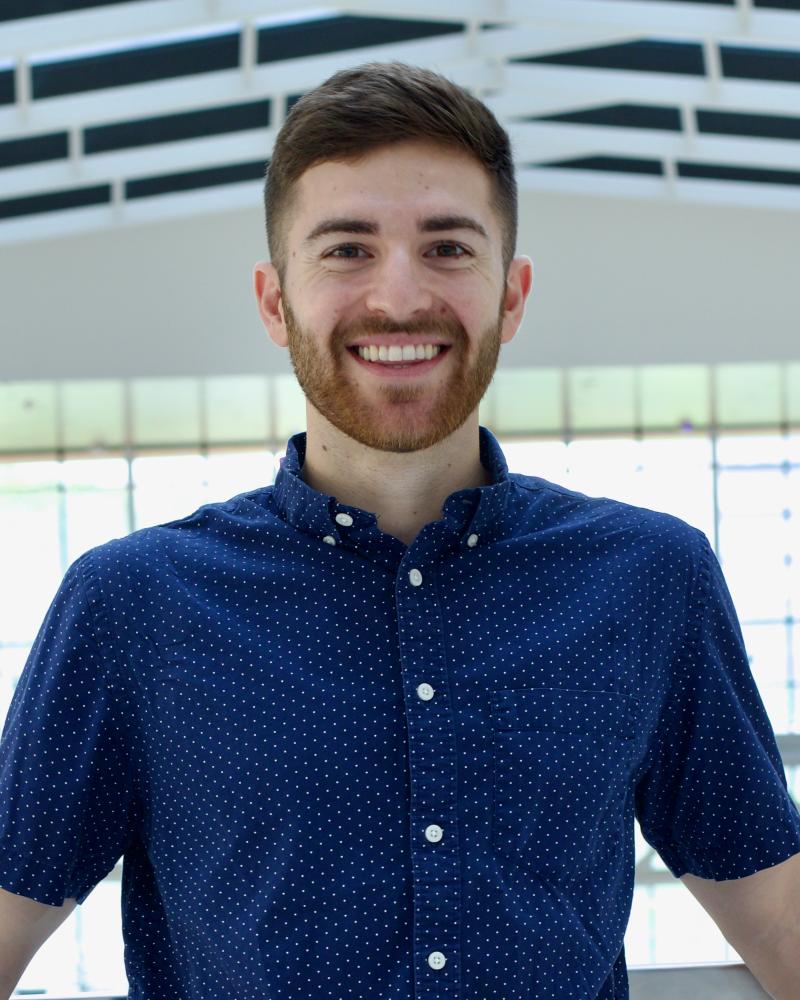The Energy Institute at the University of Texas at Austin is pleased to announce the recipients of the Chevron Energy Graduate Fellowship Endowment. Made possible by a gift from Chevron, the program supports the work of outstanding graduate students conducting energy systems research. Eight graduate students have been selected to receive awards for the 2024-25 academic year.
"Congratulations to the 2024-25 Chevron Energy Graduate Fellows,” said Eric Sirgo, Chevron’s Vice President of Facilities Engineering. “Once again, the University of Texas has produced a set of high-quality graduate students to work on the mission of providing affordable, reliable and ever cleaner energy for the planet. We look forward to seeing how these graduate fellows will positively impact the world."
The competitive award application process prioritized students whose work focuses on innovation in current- and future-energy systems.
“These students are at the forefront of the transformation of our global energy system,” said Brian Korgel, director of the Energy Institute. “The Chevron Energy Graduate Fellows program provides pivotal support for their work, enhancing our understanding of critical energy challenges and continuing UT’s global leadership in energy education, research, and innovation.”
Meet the Fellows

Jay Bender
McKetta Department of Chemical Engineering
Jay studies the role that electrolyte composition plays on electrocatalytic water-splitting reaction rates for water electrolysis to produce green hydrogen and store intermittent renewable electricity in chemical bonds to be used later on in hydrogen fuel cells. The fundamental findings from his research can be used to understand how catalyst activity can be enhanced by tailoring the environment surrounding catalyst active sites.

Shashwati da Cunha
McKetta Department of Chemical Engineering
Shashwati works on reactor and process co-design to electrochemically convert CO2 into valuable molecules. She designs electrolyzers for scaleup by modeling them within energy systems and integrated chemical processes.

Shuang Gao
Jackson School of Geosciences, Department of Earth and Planetary Sciences
Shuang’s research has evolved from extensive petrophysical analysis of organic shales using well logs to now emphasizing geophysics analysis and reservoir characterization. This work supports oil and gas extraction and CO2 sequestration, and explores hydrogen storage, all through the application of state-of-the-art AI and computer science techniques.

Ibrahim Gomaa
Hildebrand Department of Petroleum and Geosystems Engineering
Ibrahim’s research employs molecular-scale simulations coupled with laboratory measurements to enhance hydrocarbon recovery and explore CO2 sequestration in unconventional oil and gas reservoirs. Furthermore, Ibrahim is expanding his research to assess the potential leakage of CO2 and hydrogen gases from geological storage sites, aiming to advance the safety and efficiency of these storage solutions.

Harrison Lippie
McKetta Department of Chemical Engineering
Harrison’s research aims to improve green hydrogen production by reducing the use of expensive platinum-group metals and improving water-splitting catalyst performance.

Charan Nallapareddy
Department of Aerospace Engineering and Engineering Mechanics
Charan works on producing green and sustainable fuels using nonthermal plasmas at near room temperature and atmospheric pressure. He also develops ultrafast laser diagnostic tools, including single-shot terahertz time-domain spectroscopy, to understand the properties of these nonthermal plasmas to improve the yield of sustainable fuels.

Cynthia Oeiyono
Hildebrand Department of Petroleum and Geosystems Engineering
CO2 absorption with amine-based solvents is one of the most applied technologies for carbon capture. Cynthia’s research focuses on reducing the energy needed in the solvent regeneration to make it more sustainable and affordable.

Rinish Reddy Vaidyula
College of Natural Sciences, Department of Chemistry
Rinish’s research focuses on enhancing the energy storage capacity, stability, and sustainability of sodium-ion batteries through the modification of battery electrolytes and the development of all-organic cathodes.

Interested in applying for the Chevron Fellows Award?
The 2025-2026 Chevron Energy Graduate Fellows Awards Application will be published on the Energy Institute website on March 1, 2025.
Questions?
Contact Energy Institute Director Brian Korgel

